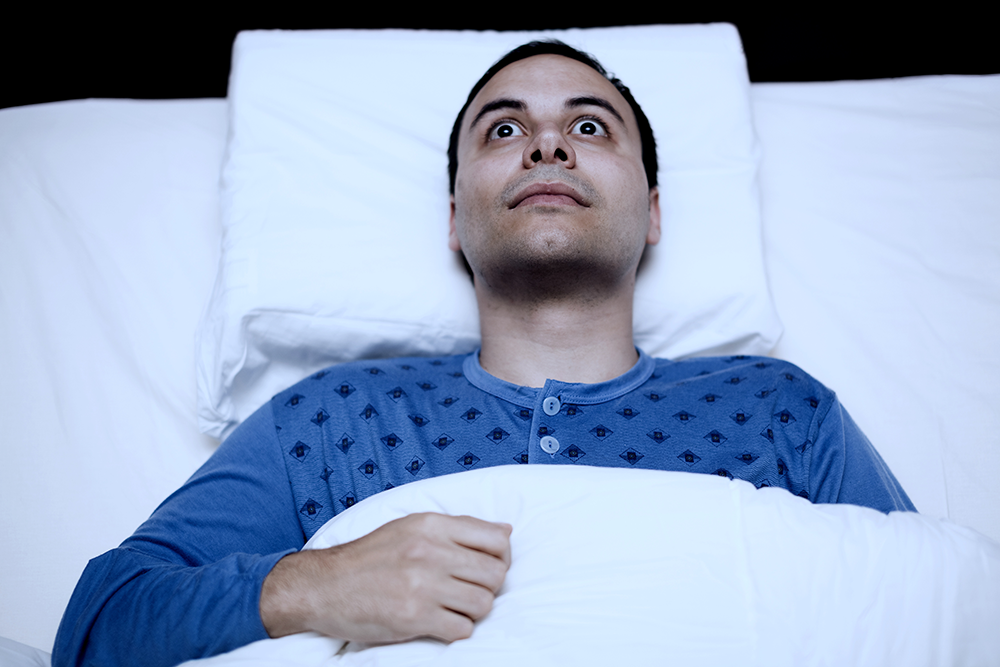Are you at risk for adverse drug interactions?

According to Mayo Clinic and Olmsted Medical Center researchers, nearly 70% of Americans take at least one prescription medication. Out of this, 50% take two prescription medications and 20% take FIVE or more prescription medications.
According to the U.S. Food and Drug Administration, 100,000 American’s die annually from reactions to prescription drugs. Out of the 4.4 billion prescription medications dispensed in the U.S. each year, 50% are not taken correctly.
Studies indicate preventable medication errors harm 1.5 million Americans each year.
Many adverse drug interactions are connected to over-the-counter (OTC) medications. Many people never consider the potential risk of combining OTC medications with their prescription medications.
Some of the most widely used OTC medications include:
- Cough medicine/decongestants
- Antihistamines
- Pain and fever relievers
- Antacids and anti-gas products
According to pharmacist Robert Baker, these OTC medications pose potential for adverse drug interactions with many commonly prescribed cholesterol and blood pressure medications, such as statins and diuretics.
Ingredients and interactions to be aware of
Baker has shared a few interactions and ingredients to be aware of…
Sleep Deprivation and Heart Disease

A 2011 study by the American Heart Association found poor quality sleep to increase high blood pressure risk, which can then lead to heart disease.
I had the pleasure of collaborating with leading alternative health expert Bryce Wylde. Bryce Wylde is a highly knowledgeable and respected natural healthcare clinician whose specialty is homeopathy, clinical nutrition, supplementation, and botanical medicine and whose focus is routed within functional medicine.
In this three-part series, Bryce shares information ranging from the connection between sleep deprivation and heart disease to the diagnosis of sleep apnea and the impact of snoring, as well as steps you can take to ensure a quality nights sleep.
Sleep deprivation
Sleep is measured physiologically by electrical changes in the brain. Sleep is quantified in the amount of time spent in or out of REM (Rapid Eye Movement). The duration from the beginning of non-REM to the end of REM is an important aspect of your sleep pattern. This is referred to as sleep architecture. Sleep architecture varies widely across species, and is thought to be significantly influenced by genetics. But no matter your eye or hair color, or where you’re from, you’ve heard of the general importance of 7-8 hours for optimal health. There is a reason for that. For optimal sleep, it is necessary to experience full and uninterrupted sleep cycles. It takes the average person about 90 mins to get through one full sleep cycle. Sleep research has concluded that we need 4-6 cycles per night to feel our best. Do the simple math and we need 7-8 hours. But accomplishing optimal sleep isn’t as easy as clocking 8 hours on your pillow.
Science has previously shown that those of us who are regularly sleep deprived or have interrupted sleep – especially those of us who snore – are more likely to have high blood pressure, diabetes and narrowed blood vessels. Each of these can decrease blood flow inside the brain. Brain cells require ample oxygen and sugar. Without ideal blood flow to the brain this will affect its ability to work properly and recall information. To boot, during sleep you can strengthen memories and practice skills you learned while awake in a “virtual” environment.
Sleep deprivation, inflammation, and heart disease
The Effects of Snoring Go Beyond Heart Disease
 As we discussed previously, poor sleep impacts inflammation, hypertension, and attention deficit. In this third part of our three-part series on sleep and heart disease, we look closer at the effect of snoring on health with leading alternative health expert Bryce Wylde.
As we discussed previously, poor sleep impacts inflammation, hypertension, and attention deficit. In this third part of our three-part series on sleep and heart disease, we look closer at the effect of snoring on health with leading alternative health expert Bryce Wylde.
The effects of snoring on relationships
The effects of snoring goes well beyond inflammation, hypertension, and attention deficit. The U.S. National Sleep Foundation reports that 90 million Americans are affected by snoring (about 28% of the population). That’s a lot of zzzs! Further, a study by the National Sleep Foundation found that about 24% of couples sleep in separate rooms because of snoring, and many couples who sleep separately are reluctant to discuss it. This is causing a lot of strain on relationships – often even to the point of separation – even, ultimately, contributing to divorce!
In fact, the National Sleep Foundation found that more than a third of respondents admit that their partner’s disruptive sleep habits have affected the quality of their relationship. Two in five (17-23%) indicated that their intimate/sexual relationships had been affected because they were too sleepy. Another 51-62% agreed that not getting enough sleep impacts their relationships with family or friends.
It turns out one of the number one undiagnosed causes of sleep interruption is indeed snoring and subclinical apnea. This is a problem for both parties of a relationship. To complicate matters, it is a common attitude that “nothing could possibly be done about snoring”. This often stops couples from taking care of this issue so that it doesn’t end up causing so many repercussions.
Sleep deprivation and weight gain
Of course, I would be remiss if I didn’t discuss the impact of too little sleep on weight gain! If you’re wondering why your recent efforts at the gym and eating clean haven’t been working as well as you’d hoped, you should know that sleep and metabolism control are found in the same area of the brain. When you are sleep deprived, your hunger hormones go way up. If you are trying to lean up, you need to ensure you get 7-8 hours of deep restful sleep. When you don’t get enough sleep, you lose muscle mass, according to research conducted at the University of Chicago.
A study in the American Journal of Clinical Nutrition found that when people were starved of sleep, late-night snacking increased, and they were more likely to choose high-carb snacks. It turns out that if you’re sleepy, you crave the wrong foods and have a harder time saying “no”.
Here is another shocker: Driving Under Drowsiness (DUD) for just one night can be as detrimental to your driving ability as having an alcoholic drink (DUI)! Sleep deprivation causes impaired reaction time and decision making. According to The National Highway Traffic Safety Administration, being tired accounted for the highest number of fatal single-car crashes due to the driver’s performance. It turns out that is even more than alcohol!
All the best,
Lisa Nelson RD
Health Pro for HealthCentral
Part 1: Sleep Deprivation and Heart Disease
Part 3: How to Obtain a Quality Nights Sleep for Optimal Heart Health
How to Get a Good Nights Sleep for Optimal Heart Health
 Bryce Wylde, leading alternative health expert, has provided a wealth of information regarding the impact of sleep on health. If you’ve missed a part of this sleep series…
Bryce Wylde, leading alternative health expert, has provided a wealth of information regarding the impact of sleep on health. If you’ve missed a part of this sleep series…
Part 1: Sleep Deprivation and Heart Disease
Part 2: The Effects of Snoring Go Beyond Heart Disease
Now, let’s summarize the health risks of sleep deprivation and move on to steps you can take to reduce risks by ensuring a quality nights sleep.
Sleep deprivation and health risks
Chronic sleep deprivation due to causes such as snoring and sleep apnea increases your chances of diabetes, depression, cardiovascular disease, hypertension, weight gain and even a fatal car accident.
Poor sleep hygiene is likely one of the most common problems encountered in our society leading to sleep deprivation. As a society, we generally stay up too late and get up too early. We have over exposure to artificial light which impedes the hormones that regulate sleep. We interrupt our sleep with drugs and chemicals. We work too many hours sustained on too much caffeine. Not to mention, we fill our heads with negative news headlines just before we hit the hay.
How to get a good nights sleep
Here is how you can successfully achieve optimal sleep hygiene:
Bryce’s first tip! Don’t push snooze in the morning! Research shows that snoozing doesn’t benefit you. Getting too little – and even too much – seems to negatively affect memory according to the Harvard-based Nurses’ Health Study whose findings were published in the Journal of the American Geriatrics Society. So, try and sleep like Goldilocks and aim for just the right amount of sleep!
Use comfortable bedding that helps you regulate temperature. Research shows about 60-67 degrees Fahrenheit is optimal.
Set your alarm twice in 24 hours. The first alarm should go off at your bed time! This will alert you to the time you need to hit the sack to achieve the necessary 7-8 hours.
Don’t take your worries to bed. Create a written list and leave it in the kitchen. Practice relaxation techniques before bed such as deep breathing and visualization. Tell yourself the list is done and you will get to it in the morning.
Drown distracting noise, and eliminate as much light as possible. Consider an eye mask. But, if you or your partner snores or has congestion, my favorite product on the market right now is appropriately and ingeniously called “Mute” by Rhinomed. Both snorers and their partners report a better night’s sleep when Mute is used, waking more refreshed. In fact, in a user trial, 75%* of partners reported snoring was either less or much less when the snorer used Mute. And let’s not forget how this issue isn’t just about the snorer but also about the partner who loses sleep while enduring the agonizing noise of the snorer! The reason I love Mute so much is that it is individually adjustable on each nostril so it fits all nose types. This enables the device to comfortably adjust to asymmetrical noses or noses with deviated septums. I have a nasal septal defect (one nostril is distinctly smaller than the other which causes me to snore). When you first put in Mute, you get an instant rush of air; you can really feel the difference. It is super easy to find by the way – available at Walgreens, Bartell Drug, CVS, Duane Reade and even online at mutesnoring.com.
Avoid napping more than 15 minutes. Do what truckers do and set your alarm for 10 to 15 minutes! Longer than that and you run the risk of entering a sleep cycle (above) thereby robbing one of the sleep cycles from happening at night. Don’t forget, you can’t “catch up” on your sleep.
Avoid alcohol and caffeine 4-6 hours before bedtime. Caffeine avoidance is obvious. But where alcohol may have immediate sleep-inducing effects, a few hours later as the alcohol levels fall and interrupt your sleep cycle by interfering with your sleep architecture.
Exercise intensely and regularly, but not right before bed! Aim for the morning time to exercise. If you exercise too soon before bed you run the risk of increasing body temperature which makes it more difficult to fall asleep.
Warm milk and foods high in the amino acid tryptophan, such as bananas and pumpkin seeds, may help you to sleep. A formula commercially available and researched for its safety and efficacy in keeping you asleep is called “Zen Bev” a formula created using pumpkin seeds yielding a high amount of naturally occurring tryptophan.
Watching TV or engaging in social media in bed is also a bad idea. Besides some of the controversial evidence about its light emission, these are very engaging mediums that tend to keep you up by keeping your mind overly active.
Your goal is not to sleep like a baby! They do tend to sleep long hours (more than you will need) but are also restless and wake up multiple times through the night. You want to sleep like a log: Quiet and waking up in nearly the same position you fell asleep in. Use Bryce Wylde’s tips above and you’ll get there!
Drs. Chris and Kara Mohr developed the 21 Days to Better Sleep program. I highly recommend it. Their videos with instructions are engaging and the content can be put to good use so you achieve quality sleep each night. Learn more and purchase the program here.
All the best,
Lisa Nelson RD
*results may vary (n=236, 2014); Based on 2014 Mute user study with 118 couples.
Six Amazing Ways Animals Can Improve Your Health
Post contributed by Paul Roberts.
 Having a pet can be one of the best things you ever do in your life. They provide us with constant entertainment, become part of our family and they are an integral part of our lives. But they can actually be beneficial to our health too.
Having a pet can be one of the best things you ever do in your life. They provide us with constant entertainment, become part of our family and they are an integral part of our lives. But they can actually be beneficial to our health too.
1. A Healthier Heart
Believe it or not, having a pet dog or a cat can actually reduce your risk of developing heart disease. The reason for this is that they can reduce our stress and will also encourage us to get out and exercise much more often. Exercise causes out blood to pump around our body and rescues its pressure, and it also strengthens our heart overall. People who own animals live a much longer lifespan than those who do not.
2. Stress Busters
Life can be stressful and tough at times, and everything in our lives can bugle up and become overwhelming if we let it happen. Stress related illnesses are some of the most common amongst the working population and pets can reduce this stress by making us happier people. You can be much happier by having a pet to come home to at the end of a hard day and one to cuddle when you are down. For those who have emotional and mental conditions you can even look at CertaPet’s ESA guide to get an emotional support animal who will help you deal with your stress. Petting your dog or cat releases positive hormones in the brain which keep us happy.
3. Sociability
As soon as you own a pet, you become much more attractive as a friend to everyone who sees you. By having a dog for example, you are much more likely to make friends while out and about in the Park because people will either want to come over and pet your dog, or they will have dogs themselves and will talk to you about them. You will make a lot of new friends and acquaintances!
How to Follow a Vegan Diet for Heart Health

Why go vegan?
The most common reasons given for pursuit of a vegan lifestyle include:
- Improve overall health
- Environmental concerns
- Natural approach to wellness
- Food-safety concerns
- Animal rights
- Weight loss/maintenance
A vegan diet is linked to many health benefits since the diet is naturally low in saturated fat and high in fiber. Studies have found vegan diets to reduce cancer and heart disease risk. Additional health benefits connected to a vegan diet include lower blood pressure, improved diabetes management, and decreased risk of kidney stone and gallstone formation.
However, a vegan diet does not automatically equal healthier. Whether you are vegan or not it always comes down to the foods you select. There are high sugar and high-fat vegan foods that are contrary to a healthy diet.



